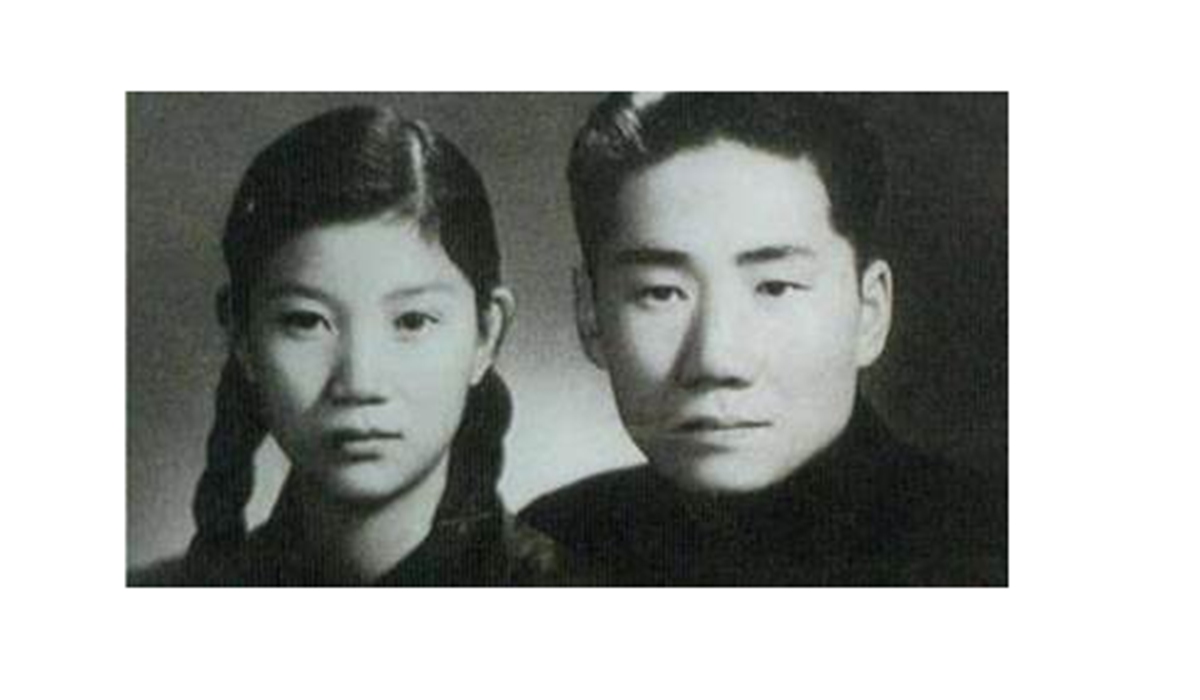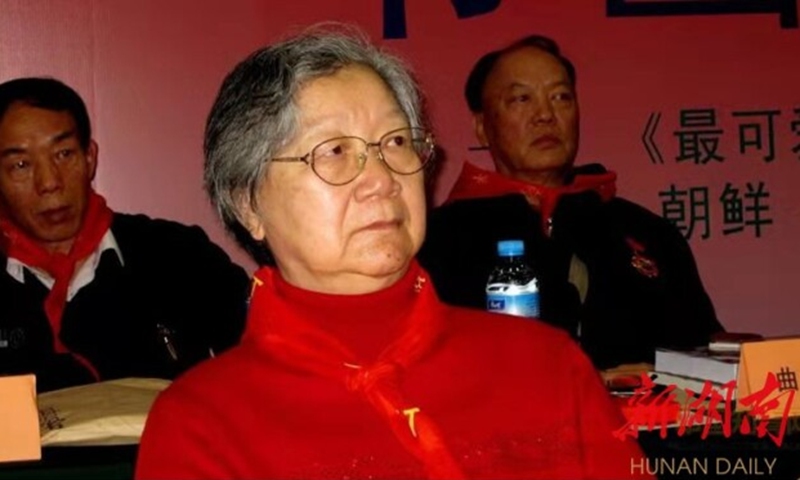
Liu Siqi and Mao Anying.
Liu Siqi, the widow of Mao Anying, late Chinese leader Mao Zedong’s eldest son who died in North Korea during the War to Resist US Aggression and Aid Korea (1950-53), passed away at the age of 92 on Friday, according to the association of Chinese calligraphers and the Hunan Daily also published a elegiac couplet on its APP to mourn her on Saturday.
Liu was also a calligrapher herself. After the release of her obituary at Friday night, many Chinese netizens mourned her on social media platforms including Sina Weibo and WeChat. The tag “Comrade Liu Siqi passed away” received 2.47 million views on Saturday.
“Liu and Mao Anying can finally meet each other again,” said a Sina Weibo user. “Please tell Mao Anying, the Chinese people remember what he did to defend our country and tell Chairman Mao Zedong how powerful and prosperous China has now become,” said another.
Liu was featured in the documentary Weile Heping (For Peace’s Sake), which was produced by China Central Television and started airing in 2020. In the program, Liu bid last goodbye to her husband in 1950, who she had been married to Mao Anying for only one year.
Mao Anying volunteered to fight in the war in 1950 when Chairman Mao Zedong decided to set up the Chinese People’s Volunteers Army to reinforce North Korea and fight the US-led coalition force after the US ignored China’s warning to not cross the 38th Parallel on the Korean Peninsula, and pushed the allied ground forces to the China-North Korea border.
Then 28-year-old Mao Anying went to say goodbye to Liu, who had just undergone an appendectomy. But instead of telling her the truth, Mao Anying said he was going for an errand to a place where it might be difficult to come back home from.
Liu said in the documentary that she sensed something unusual when her husband bowed to her twice before he left.
He never returned.
The documentary touched the hearts of many Chinese netizens, who said it was too sad to watch. Some said there were countless similar sad stories during the Korean War, and retelling them should remind Chinese people today not only to cherish peace, but also to devote themselves to self-improvement, and fighting against invasion and imperialism.
The documentary is one of several events marking the 70th anniversary of the Chinese People’s Volunteers Army’s participation in the war to help Korea resist US aggression.
Photo: Hunan Daily




